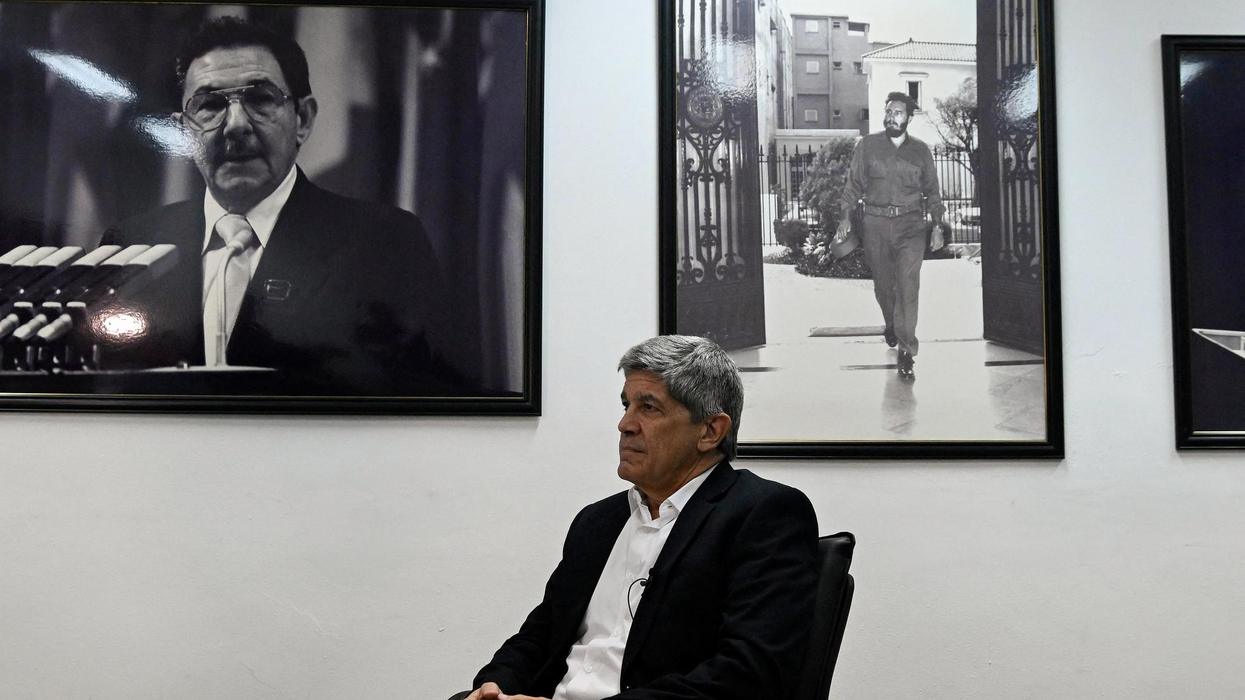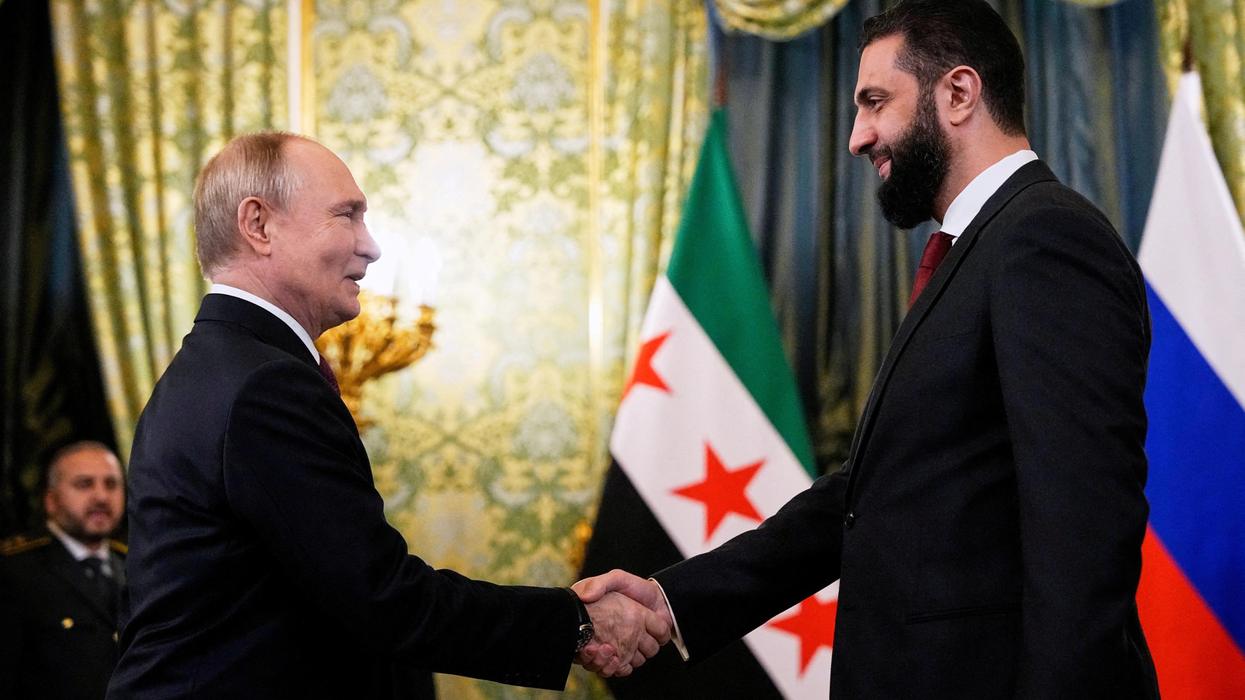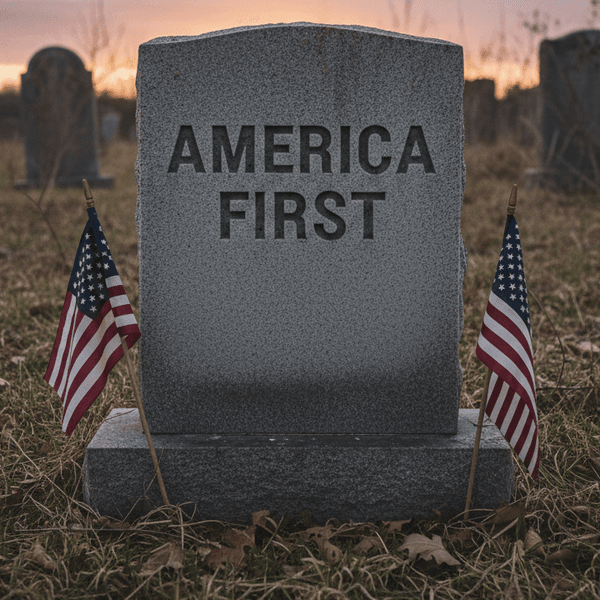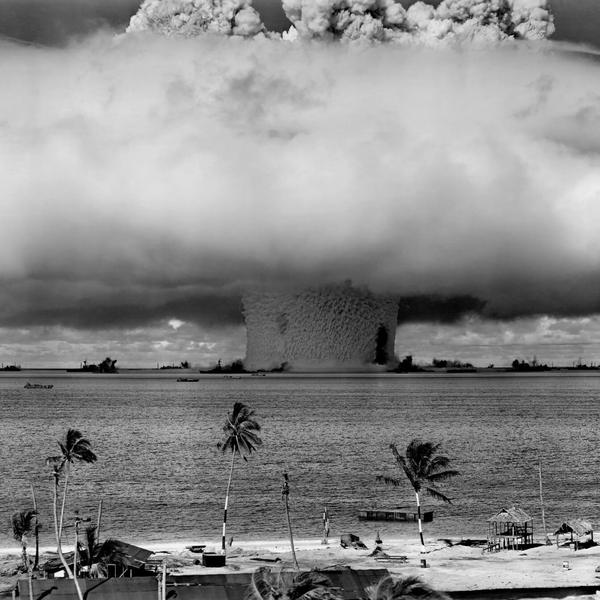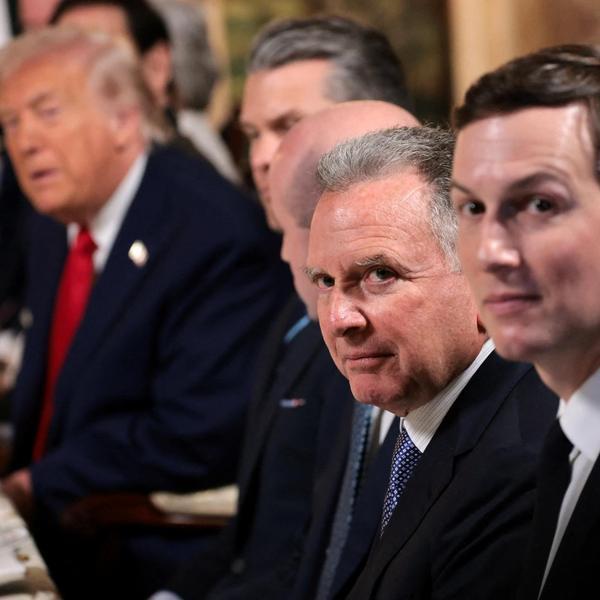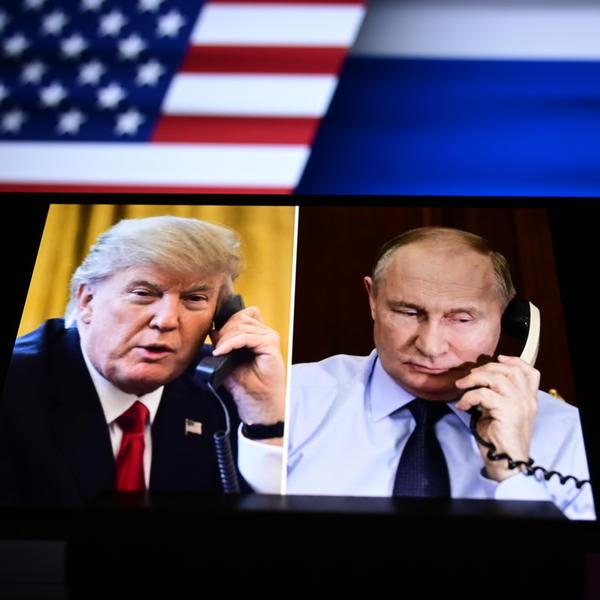“[H]igh and excellent tragedy, that…with stirring the affects of awe and commiseration teacheth the uncertainty of this world and upon how weak foundations gilden roofs are builded.”
— Sir Philip Sidney, A Defence of Poesie.
President Vladimir Putin has described the fall of the Soviet Union, which came to a formal end 30 years ago, on December 26, 1991, as a geopolitical tragedy; and it is easy to understand why he and many other Russians would see it as such. In a deeper, more classical sense, however, it may be said that the true tragedy of the end of the Cold War was that of the apparent victor, the United States.
The last acts of this tragedy are still to be written. We can hope that it will end with the relative reconciliation and harmony of Coriolanus, and not the nihilistic horror of Titus Andronicus. The New Year, when (ideally) people consider the past in order to commit themselves to do better in future, is a good time to think about the meaning of this tragedy.
Since Aristotle, one kind of tragedy has been seen as that of a true hero, with noble qualities, betrayed by some inner flaw. Most commonly, his great achievements and victories lead him to the crime of Hubris, or overweening arrogance, a crime that is inevitably punished by Nemesis. This of course only echoes a much older piece of common sense, summed up in the Bible: “Pride goeth before destruction; and an haughty spirit before a fall.” (Proverbs, 16: 18).
American victory in the Cold War was in many ways deserved — certainly by comparison with its defeated rival, Soviet communism. While capitalism committed many crimes and mothered many demons, communism committed many more, and from the 1970s proved hopeless when it came to raising the living standards of the population. (The Chinese Communist Party later succeeded magnificently, but its economic strategy has been a version of state-led capitalism with nothing in common with the vision of Marx, Lenin or even Stalin). And within America and Western Europe at least, American-led democratic capitalism did this with only a tiny fraction of the victims sacrificed to communism.
American victory was complete; too complete. In terms of foreign policy, it bred in America the atmosphere that produced the phrase, that to my horror I heard repeated by Democratic and Republican analysts alike, that “of course, today America is so powerful that it can achieve anything it wants in the world, if it only has the will.” This mood produced the so-called “Wolfowitz Doctrine” summed up in the Defense Planning Guidance memo of 1992, that advocated in effect the extension to the entire planet of Theodore Roosevelt’s corollary to the Monroe Doctrine, which had stated that the United States had the right not only to exclude foreign powers from Central America but to intervene there by force to create better governments.
Mocked at the time for its dangerous megalomania, this became in effect the standard operating procedure of both the Clinton and Bush administrations, and even to a lesser extent that of Barack Obama. It helped to produce a series of actions that would have been inconceivable while America was still challenged by the Soviet superpower.
These actions have rebounded with disastrous effect on the United States, and still more on countless unfortunate people in other parts of the world: the expansion of NATO to countries that were never of the slightest interest to America and that are far beyond America’s power to defend; the attempt to reduce Russia to an American client state; the invasion of Iraq and the destruction of the Iraqi state; the attempt to make Afghanistan a modern liberal democracy; the blithe confidence that growing Chinese wealth would turn China into a pro-American democracy, followed by hysterical disappointment, fear and hatred when this hope proved empty; and underlying all this, the belief that America was inevitably “on the right side of history” (a phrase highly reminiscent of the old Communist one that “the winds of history are in our sails”) and that not only was democracy destined to spread across the entire planet, but that democracy everywhere meant agreement to the goals of U.S. foreign policy and support for U.S. national interests.
Coupled with this was the confirmation of American innocence. In the Soviet dissident writer Vassily Grossman’s great novel Life and Fate, there is a memorable passage which portrays Stalin hearing the news of victory at Stalingrad, and seeing in his mind’s eye how this meant that the ghosts of all the people whom he had murdered would sink back into the ground and their graves would be obliterated and forgotten.
I rejoiced greatly in the end of Soviet communism, both because of its monstrous past crimes and the extremely dreary and cynical society that it had produced by the 1980s. I still believe that the struggle against Soviet communism was necessary, and that in that struggle certain Western crimes were unavoidable. However, I also hoped that the end of that struggle— so amazingly bloodless compared with the apocalyptic nuclear fears that had haunted my youth — would produce reflection and self-correction in America and the West – of the crimes committed and the lies that were told; and of the militarism, hatred and paranoia that had undermined democracy at home, as well as in so many countries abroad whose people were made to suffer in the name of protecting them from communist influence or domination.
In fact, of course, nothing of the sort occurred. Instead, the Western crimes of the Cold War were not just legitimized but forgotten in the euphoria of victory. When America invaded Iraq 12 years later, even liberal intellectuals who opposed the Vietnam War appeared to have completely forgotten one of its key lessons: that the danger to America in Iraq was not just going to be the Iraqis; it was going to be Americans themselves. Nobody who remembered My Lai should have been surprised by Abu Ghraib. But in an atmosphere in which a leading Democratic foreign policy thinker (and later ambassador) could tell me with apparently genuine conviction that “every war that America has ever fought has been to spread democracy and freedom,” such self-awareness was exceptionally difficult.
The failure on the part of the U.S. and Western establishments to analyze and critique the profoundly warping and corrupting effects of the Cold War on the American state, politics and culture means that in the “new cold war” with China we risk committing the same mistakes and crimes all over again; but this will take place over a much longer period and prove even more damaging. For the USSR, both as the last multinational European empire and as a state founded on a lunatic economic ideology, was bound to die eventually. China, with its ancient history, successful economy, and powerful nationalism, is a very different matter; and how much will be left of American democracy after a few generations of this struggle is a question that should worry anyone with a sense of history.
The Encyclopaedia Britannica’s essay on Tragedy contains the following passage:
“The capacity to learn through suffering is a distinguishing characteristic of the tragic hero, pre-eminently of the Greek tragic hero. He has not merely courage, tenacity, and endurance but also the ability to grow, by means of these qualities, into an understanding of himself, of his fellows, and of the conditions of existence.”
Americans have suffered quite a lot as a result of the hubris displayed by their elites in the thirty years since the fall of the Soviet Union. Let us hope that this leads to a better understanding of the world, and of themselves.



